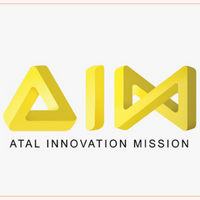Students and educators at all levels of education have been compelled to quickly adapt to online learning due to the coronavirus outbreak. The ramifications of this and the changes required to make it work could have a long-term effect on how education is provided. According to research, online classes boost information retention and take less time, implying that the changes brought by the coronavirus are here to stay.
While countries’ COVID-19 infection rates vary, more than 1.2 billion children in 186 countries are being impacted by school closures as a result of the Covid-19 outbreak. With the abrupt shift away from the school in many parts of the world, some are pondering if online learning adoption would continue post-pandemic, and how such a shift might affect the global education industry.
Benefits Of Online Classes

Online classes have numerous benefits some of which are mentioned as follows:
- There is convenience of learning from the comfort of your home.
- Online classes provide optimum convenience and flexibility by allowing you to work while studying.
- There are more opportunities for interaction between teachers and students.
- You are free to learn at your own pace.
- Online classes provide greater capacity to concentrate.
- It helps in boosting your brain’s performance and keeps it in good shape.
- You can study in the manner that best suits your learning style.
- It helps in developing self-control and accountability.
Disadvantages Of Online Classes

There are multiple drawbacks of online learning. Some of the downsides are mentioned as follows:
- Inability to focus on the screen for long periods of time.
- Another major issue with online classes is the inconsistency of internet service.
- Online classes may create a sense of isolation.
- Online classes require additional training for instructors.
- One of the most serious problems and downsides of online classes is the rise in screen time.
- Lack of communication skills development.
- Preventing cheating during online tests is difficult.
Difference Between Online Classes and Traditional Learning

There are two types of learning: online classes and traditional classes. They both offer nearly the same type of education and provide high-quality teaching. However, there are a few key distinctions between online and traditional classes.
Flexibility
A traditional class is held at a fixed time and location. Students are given a week’s worth of class schedules, and the teacher expects students to show up for class at the designated time. Because of this time commitment, traditional learning is difficult for some students who have other obligations, such as family or work.
One advantage of online classes is that they allow students to be more flexible. This is a fantastic choice for folks who already have family and career obligations. Online classes adapt to your schedule, allowing you to log into your class whenever it is convenient for you, rather than needing to attend a lecture at a certain hour.
Social Interaction
The interaction with the teacher and other classmates is one of the key advantages of a traditional learning environment. It’s a little easier to go the additional mile if you feel your teacher is invested in your study. Also, engaging with your teachers on a daily basis might be inspiring for some.
While social interaction with teachers and other students is less likely in online classes, it nevertheless occurs. The most significant variation is in the format of the interactions. In online learning, student interactions take place via video chat or online discussion boards.
Discipline and Self – Motivation
A traditional learning setup provides a well-structured lesson schedule. You must attend a class at a specified time or you will miss the lesson and the teacher’s material along with additional consequences.
The extra flexibility of online learning comes at a cost: you’ll need to be extremely self-motivated to succeed. While all classes need students to complete required reading and assignments, some students find it hard to stay motivated when learning at home.
Conclusion
Online learning is a new and challenging field. The usage of digital technologies has both advantages and disadvantages. However, it is evident that the teaching paradigm must shift in order for online classes to be successful. Educators must make the transition from a teaching-centered to a learning-centered model.























